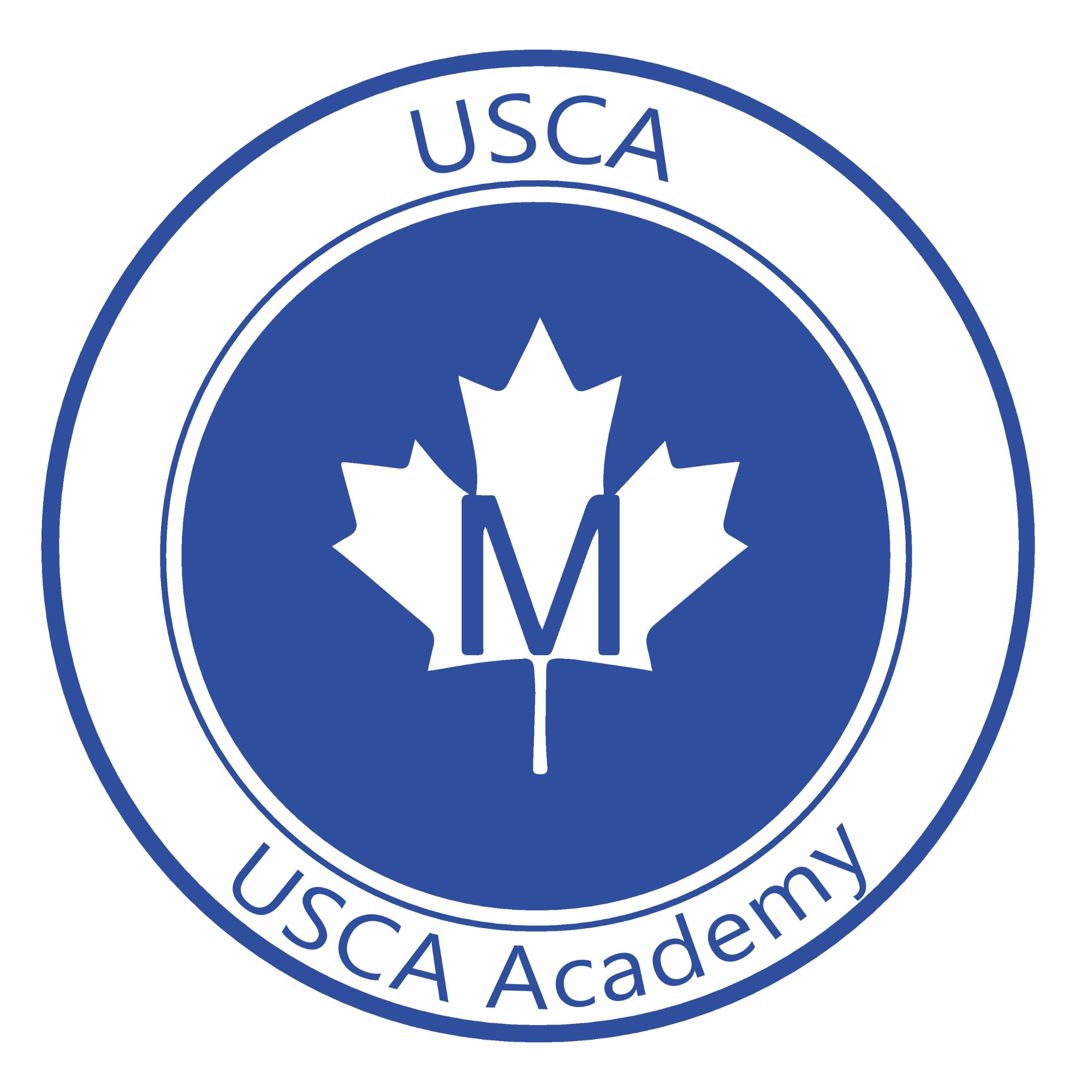Key Highlights of IELTS Canada
- The IELTS test is needed for Canadian immigration and higher education. It is proof of your English language skills.
- Canada accepts two main tests. These are IELTS Academic, which is used for study permits, and IELTS General Training, which is used for Express Entry and work visas.
- The IELTS score you need will depend on your goal. The requirements are not the same for university admission or for different immigration programs.
- In Express Entry, your IELTS score helps you earn more points. Getting a better IELTS score can really help you move up and get permanent residency.
- You can book your IELTS test at many test centres in Canada by using IDP IELTS.
Introduction
Are you thinking about going to Canada to study, work, or begin a new chapter in your life? To do any of these, you will first need to show that you have good English language skills. Most people do this by taking the IELTS test. This guide is here for you to help you understand all about the IELTS Canada process. We will tell you about the different test formats, what scores you need for higher education or moving to Canada, and how you can get ready for the test. Let us help you make your Canadian dream come true.
IELTS Canada: Overview and Importance
The International English Language Testing System (IELTS) is a globally recognized test for assessing English language proficiency. In Canada, proficiency in English is essential for most visa applications and university admissions. Depending on your goals, you may need to take the academic test for studying or the general training test for immigration. Your IELTS score is crucial as it opens up numerous opportunities. Understanding the required scores is key to advancing your plans in Canada.
What Is the IELTS Exam and Why Do You Need It for Canada?
The IELTS exam is an English test that checks if you can use the language well in everyday situations. It assesses your listening, reading, writing, and speaking skills. Immigration, Refugees and Citizenship Canada uses IELTS as proof of English proficiency for most visa and immigration applications. A good IELTS score helps you qualify for study permits, post-graduation work permits, and permanent residency through Express Entry. It shows you can keep up in lectures, interact at work, and fit into Canadian society. Without the required IELTS score, your visa, university admission, or citizenship application could be delayed or rejected.
Academic vs. General Training: Which Test to Choose?
Choosing the right IELTS test is the first step for Canada. There are two main options: IELTS Academic and IELTS General Training. The test you need depends on your goals. IELTS Academic is for those aiming for higher education or professional registration, as it uses academic language found in universities. IELTS General Training focuses on everyday English needed for work, immigration (like Express Entry), or daily life in Canada.
Here is a simple way to help you choose the right IELTS test:
- IELTS Academic: For higher education or professional registration in Canada.
- IELTS General Training: For immigration, work visas, or secondary education.
Check requirements before booking.
IELTS vs Other English Tests (CELPIP, TOEFL)
When moving to Canada, you may wonder which English language tests are accepted for immigration. People often compare IELTS, CELPIP, and TOEFL. Each test is unique, but for Canadian immigration, only IELTS General Training and CELPIP – General Test are accepted by IRCC:
- IELTS General Training
- CELPIP – General Test
IELTS is the most widely available and recognized English test globally, making it easier for applicants worldwide. CELPIP is mostly available in Canada. TOEFL is mainly for academic admissions and is not commonly used for immigration. Many choose IELTS for its accessibility and extensive preparation resources.
IELTS Requirements for Canadian Study Permits
To study in Canada, you must obtain a study permit and achieve a satisfactory IELTS score. Each Canadian college and university sets its own IELTS requirements, which vary based on the program. Generally, higher scores are needed for Master’s degrees, while diploma programs may require lower scores. We will explore the specific score requirements for various programs and highlight the expectations of leading universities.
Minimum IELTS Score for Bachelor’s, Master’s, and Diploma Programs
- The minimum IELTS score for a Canada student visa varies by program and university.
- Bachelor’s and diploma programs typically require an overall Academic score of 6.0 to 6.5, with no band below 6.0. Master’s and doctoral programs usually need between 6.5 and 7.0 overall, and may require at least 6.5 in each module: Listening, Reading, Writing, and Speaking.
- Competitive fields like law or medicine may set higher requirements. Always check your chosen university’s admissions page for the exact IELTS band scores to ensure you meet the language criteria for your desired program.
Top Canadian Universities Accepting IELTS and Their Score Bands
Almost all universities and colleges in Canada accept IELTS scores as proof of English language proficiency, but top institutions like the University of Toronto, McGill University, and University of British Columbia often require higher scores. These schools are competitive and look for strong results from international applicants.
Here are general IELTS band requirements for leading Canadian universities:
- University of Toronto: Overall score of 6.5, with no section below 6.0.
- McGill University: Overall score of 6.5, with at least 6.0 in each section.
- University of British Columbia: Overall score of 6.5, with each section 6.0 or above.
Use official IELTS materials or join coaching centers like USCA Academy to prepare.
Province-Wise IELTS Score Requirements
Beyond federal programs and university admissions, IELTS scores are essential for Provincial Nominee Programs (PNPs) in Canada. Each province and territory (except Quebec) sets its own IELTS requirements, usually based on the job offer or the occupation in demand. Minimum IELTS scores are linked to the Canadian Language Benchmark (CLB) levels and the National Occupational Classification (NOC) code of your job. For entry-level or semi-skilled roles, CLB 4 is often needed, while skilled worker streams require CLB 5 or higher; competitive Express Entry-linked streams require CLB 7. The table below shows typical minimum scores for different program types:
| Program Type | Typical Minimum CLB Level | Equivalent IELTS General Training Score |
|---|---|---|
| Entry-Level/Semi-Skilled | CLB 4 | Reading: 3.5, Writing: 4.0, Listening: 4.5, Speaking: 4.0 |
| Skilled Worker (Non-Express Entry) | CLB 5 | Reading: 4.0, Writing: 5.0, Listening: 5.0, Speaking: 5.0 |
| Skilled Worker (Express Entry Linked) | CLB 7 | 6.0 in all four bands |
IELTS for Canadian Immigration and Express Entry
For skilled workers aiming to live in Canada, the Express Entry system is essential for obtaining permanent residency. Demonstrating English language proficiency through the IELTS test is crucial, as your scores influence your Comprehensive Ranking System (CRS) ranking. Immigration, Refugees and Citizenship Canada (IRCC) requires the IELTS General Training test for all Express Entry programs. Strong English skills enhance your ability to work and integrate into Canadian society. Here are the required scores.
Minimum IELTS Score for Express Entry and PR Pathways
- Your IELTS score is essential for Canada PR and Express Entry. Minimum requirements vary by program:
- Federal Skilled Worker Program: At least Canadian Language Benchmark (CLB) 7, which is IELTS 6.0 in Listening, Reading, Writing, and Speaking.
- Canadian Experience Class: Requirements depend on your job skill level.
- Higher IELTS scores earn more Comprehensive Ranking System (CRS) points up to 136 for language if you’re single.
- Achieving CLB 9 (IELTS: Listening 8.0, Reading 7.0, Writing 7.0, Speaking 7.0) or above can significantly strengthen your profile and improve your chances of Canadian immigration.
CLB Equivalency: How IELTS Scores Convert to Canadian Benchmarks (with Table)
To determine your eligibility for Canadian immigration, it’s important to understand how your IELTS score converts to the Canadian Language Benchmark (CLB). The CLB measures the English language ability of adult immigrants and is essential for Express Entry. Your points for language proficiency are based on your CLB level, which is calculated from your IELTS General Training results. When submitting your application, you’ll need your Test Report Form (TRF) number to enter your scores; you don’t need to upload the physical document initially. Use the table below to see how IELTS scores translate to CLB levels for immigration purposes.
| CLB Level | Reading | Writing | Listening | Speaking |
|---|---|---|---|---|
| 10 | 8.0-9.0 | 7.5-9.0 | 8.5-9.0 | 7.5-9.0 |
| 9 | 7.0 | 7.0 | 8.0 | 7.0 |
| 8 | 6.5 | 6.5 | 7.5 | 6.5 |
| 7 | 6.0 | 6.0 | 6.0 | 6.0 |
| 6 | 5.0 | 5.5 | 5.5 | 5.5 |
| 5 | 4.0 | 5.0 | 5.0 | 5.0 |
| 4 | 3.5 | 4.0 | 4.5 | 4.0 |
IELTS Requirements for Other Visa Categories
Beyond Express Entry, the IELTS test is essential for various Canadian visa and citizenship applications. Language requirements depend on the specific visa type. Higher IELTS scores are often needed for regulated jobs. Here’s how IELTS applies to other paths:
- Skilled Trades: The Federal Skilled Trades program asks for at least CLB 5 in Listening and Speaking, and CLB 4 in Reading and Writing.
- Caregiver Programs: These usually require around CLB 5 to ensure effective communication.
For Canadian citizenship, applicants aged 18-54 must meet language criteria, often CLB 4. The IELTS General Training test proves your language ability for these programs.
Booking Your IELTS Test in Canada
Ready to take the first step? It’s easy to book your IELTS exam in Canada. There are two main organizations you can go with. The first is IDP IELTS and the other is the British Council. Both give you the same IELTS exam, so you can pick the test centre or test date that works best for you.
You get to choose the paper-based test or the computer-delivered test. The computer test gives you more test dates and faster results. In the next sections, I will help you with the registration steps. You will also see how to find a test centre, learn about the test date options, and know what costs may be involved.
How to Register for IELTS (Step-by-Step)
So, how do you book an IELTS test in Canada? The process is straightforward and can be completed online. First, decide whether you want to take IELTS on paper or computer, and choose between the Academic or General Training version. Then, visit the official IDP IELTS or British Council website, or use the IDP app. Make sure you have a valid passport or Canadian permanent resident card, as this is required for registration and on test day.
Here is a quick step-by-step guide:
- Visit the official IELTS Canada booking page online.
- Select your test type (Academic/General Training) and format (computer/paper).
- Choose a test centre, date, and time, then fill in your details and upload your valid ID.
- Complete your payment online to confirm your registration.
Test Dates, Centers, and Fees Across Canada
You can find IELTS test centres in almost every major Canadian city, from Vancouver to Halifax. Use the search tool on the IDP IELTS or British Council website to locate the nearest centre to you. With many locations nationwide, test-takers have plenty of options. IELTS test dates are frequently available, especially for the computer-delivered test, with several choices each week. Fees typically range from $300 to $350 CAD, though costs can vary by centre and location.
A few key points you should know:
- There are more test dates for the computer-delivered test than the paper-based one.
- Book early, especially during busy seasons.
- Check the official IELTS website for the latest fees and dates.
Score Release, Validity, and Retake Policies
After finishing your IELTS test, results are quick: computer-delivered results are online in 3-5 days, while paper-based results take 13 days. You receive one official Test Report Form (TRF). IELTS scores are valid for two years from your test date important for immigration and university applications. For Canadian immigration (IRCC), your scores must be valid both at Express Entry submission and permanent residence application. If you’re unhappy with your score, you have options:
- Retake the full test: You can retake the IELTS test as many times as needed.
- IELTS One Skill Retake: Retake one section only, but check if your recipient accepts it.
Preparing for the IELTS Exam in Canada
Getting a high score on the IELTS test does not just happen by luck. You need to put time and effort into your preparation. It is important to know the test format, the question types, and how much time you have for each part. Having a good plan for your IELTS preparation in Canada helps you build your language proficiency and feel more confident.
You can get ready for the IELTS test by studying on your own with official books and practice papers. You can also choose to learn from IELTS experts. There are many resources out there to help you. Next, let’s look at the best ways to get ready, simple tips for your study plan, and what mistakes you need to watch out for.
Best IELTS Prep Resources and Courses (Including usca academy)
If you’re preparing for the IELTS exam in Canada, several excellent resources can help. The official IELTS partners IDP and British Council offer free prep tools, including sample questions, practice tests, and webinars led by experts. Joining an IELTS preparation course gives you a clear study plan, personal tips, and expert advice. Schools like usca academy specialize in focused IELTS coaching, helping you improve your skills and test strategies.
Use these top resources to prepare for your IELTS exam in Canada:
- Official IELTS Practice Materials: True-to-the-test study tools.
- IELTS Masterclass: Free classes with expert tips.
- Online Courses and Coaching: Structured study plans and expert advice.
Study Tips to Achieve Your Target Score
To achieve your target IELTS score, having a focused study plan is essential. Understand the IELTS test format, timing, and question types so you can manage your time well during the exam. Practice all four English language skills, not just your strengths; spend extra time on weaker areas and seek feedback from teachers or IELTS experts. Aim to improve your overall English proficiency.
Here are some study tips you can use:
- Take Timed Mock Tests: Simulate exam conditions to build stamina and improve time management.
- Expand Your Vocabulary: Read widely and keep a vocabulary journal for new words.
- Practice Speaking English Daily: Find a speaking partner or record yourself for fluency and pronunciation.
Common Mistakes to Avoid
When preparing for the IELTS exam, it’s important to know what mistakes to avoid. Many people lose points on small errors, even if their English is good. Poor time management is a major issue, especially in the Reading and Writing sections. Another common mistake is not reading the question carefully, which can lead to off-topic essays or incomplete answers. In the Speaking test, short or undeveloped answers may lower your score.
There are two key mistakes you should avoid:
- Ignoring Word Count: Writing below the required word count in Writing tasks will result in penalties.
- Leaving Answers Blank: Always guess instead of leaving blanks.
Conclusion
To sum up, it is important to know the IELTS Canada requirements if you want to study or move to Canada. There are two types of IELTS: Academic and General Training. Picking the right one can affect your choices in a big way. Keep in mind, there are different score needs for every school and immigration route. You should learn what each one needs before you start. Using study tools like usca academy and good tips for preparing can help you reach the score that you need. We are here to help you with this journey at any time. If you have questions or you want more help, you can talk to us.
Frequently Asked Questions
1. What are the common reasons for IELTS cancellation or rescheduling in Canada?
An IELTS test may be called off or moved to another day for personal reasons. These can be illness or a family emergency. You might have to show papers for proof if this happens. At times, a test centre may cancel a test date. It could be because of unexpected computer problems or very bad weather. In that case, you will get a new date or a full refund.
2. Are mock tests and practice scores considered by Canadian universities or immigration?
No, you have to give your ielts test at an official test centre. Canadian universities and immigration offices will only take your test results from one of these centres. Mock test and practice scores help you get ready and show you where you need to improve. But these scores are not official and can not be used in your application. You must use only the official ielts test results from a test centre.
3. Can IELTS test centers accommodate special needs or disabilities in Canada?
Yes, it is true that IELTS test centers try to help everyone take the test. If you or any test-taker has something that makes the test hard, like a disability, you can ask for help. You may get more time, get test materials that fit your needs, or use technology made for people with special needs. You have to talk to your test centre before your test day to plan these things.
4. What ID documents are accepted on IELTS test day in Canada?
On your IELTS test day, you need to bring the same valid ID you used when you signed up for the test. Most people taking the test in Canada will need their original, valid passport. If you are a Canadian permanent resident, you might use your PR card. You cannot use photocopies or expired IDs on test day.
5. How much is the IELTS test fee in Canada?
The IELTS test fee in Canada typically ranges from CAD 300 to CAD 400, varying by region and testing center. It’s essential to check the official IELTS website or contact local centers for the most accurate and up-to-date pricing information before registering for the exam.









